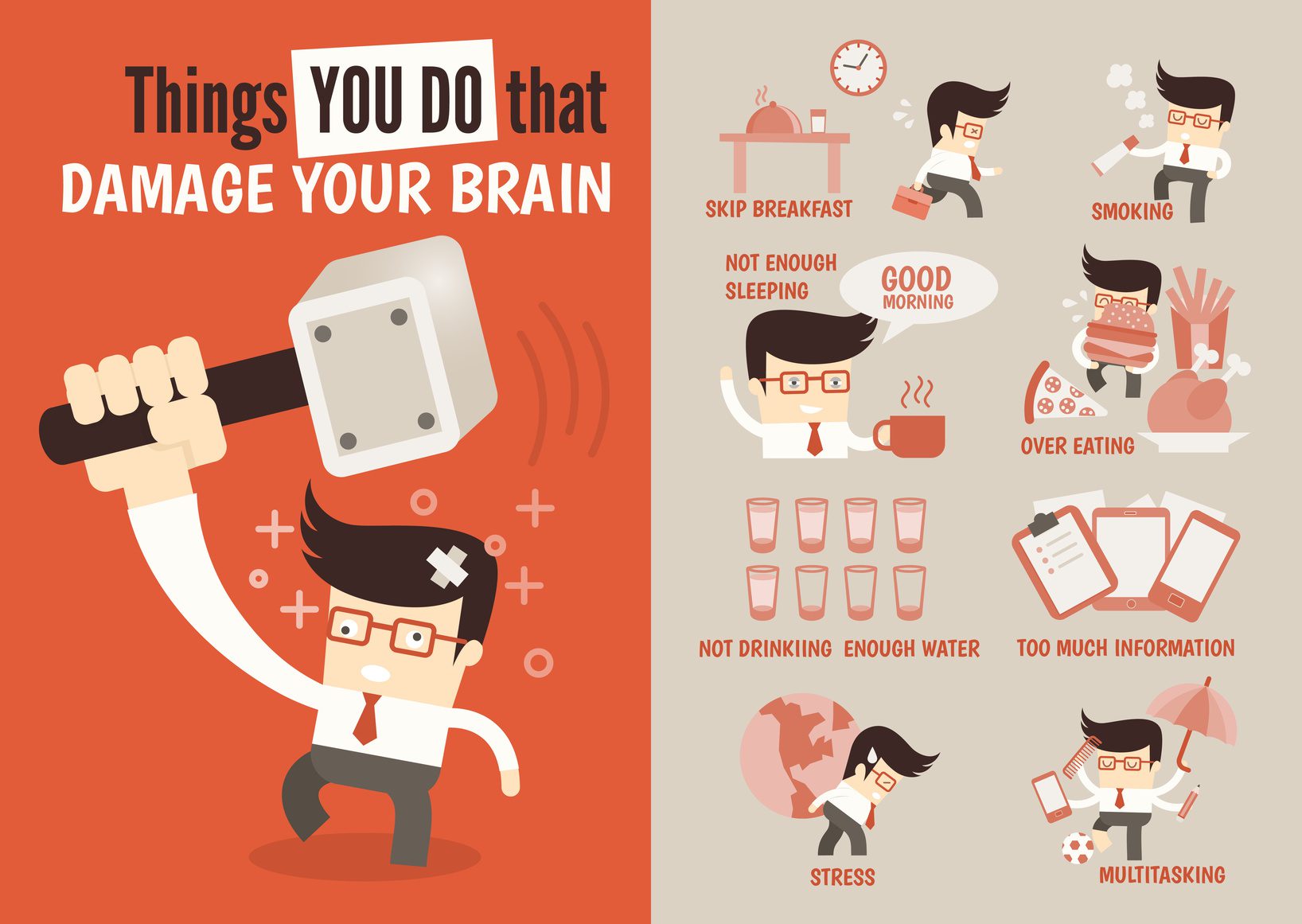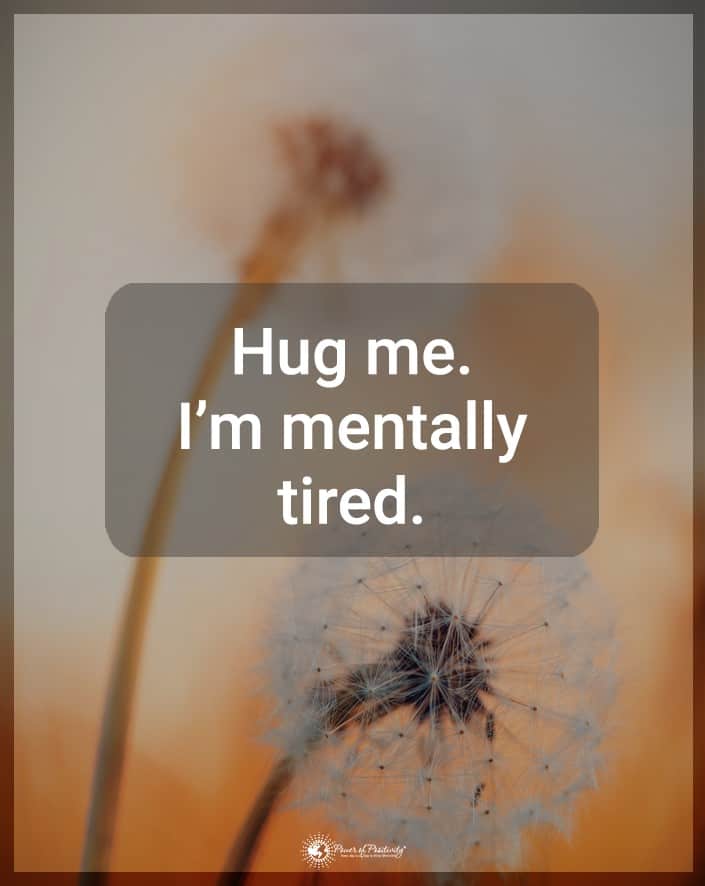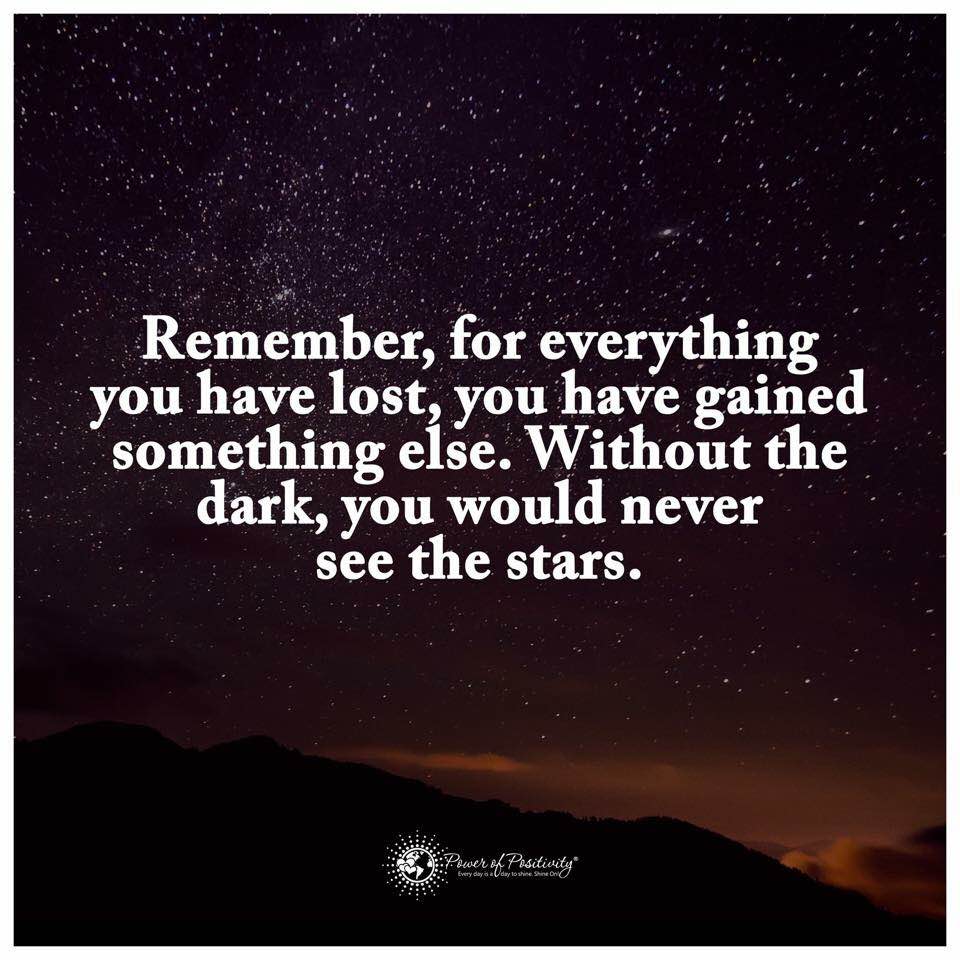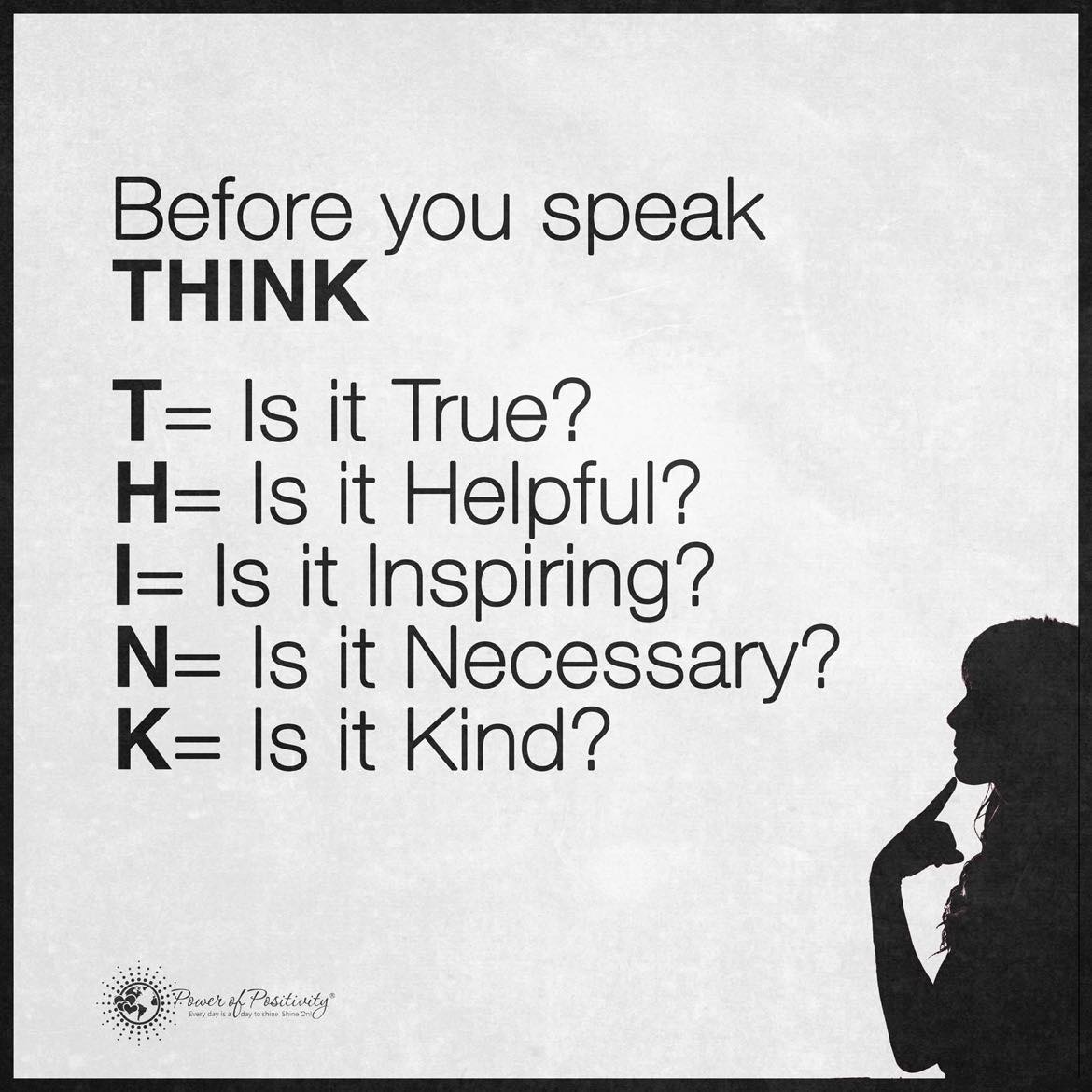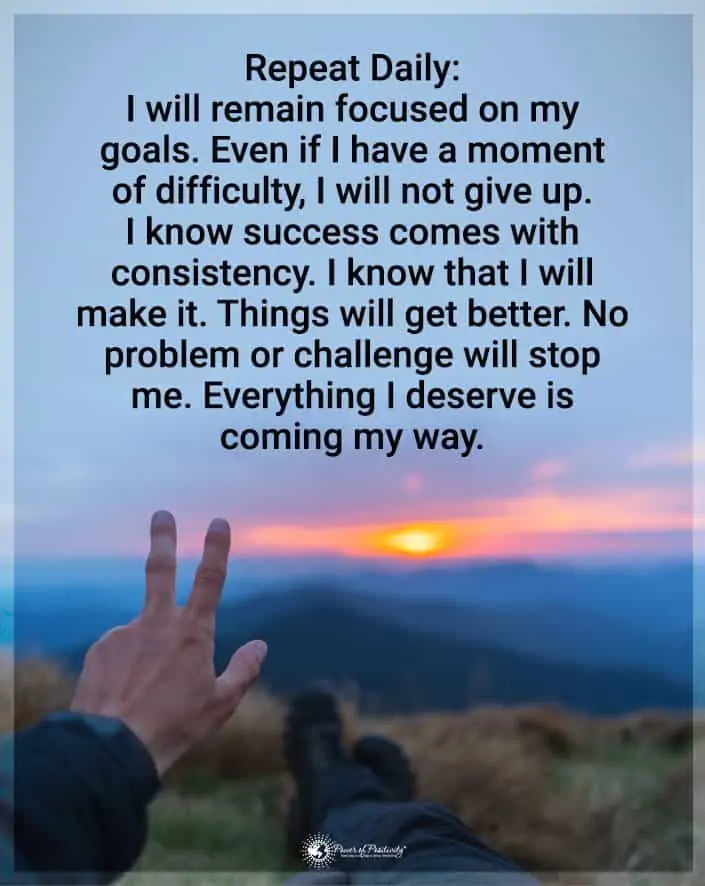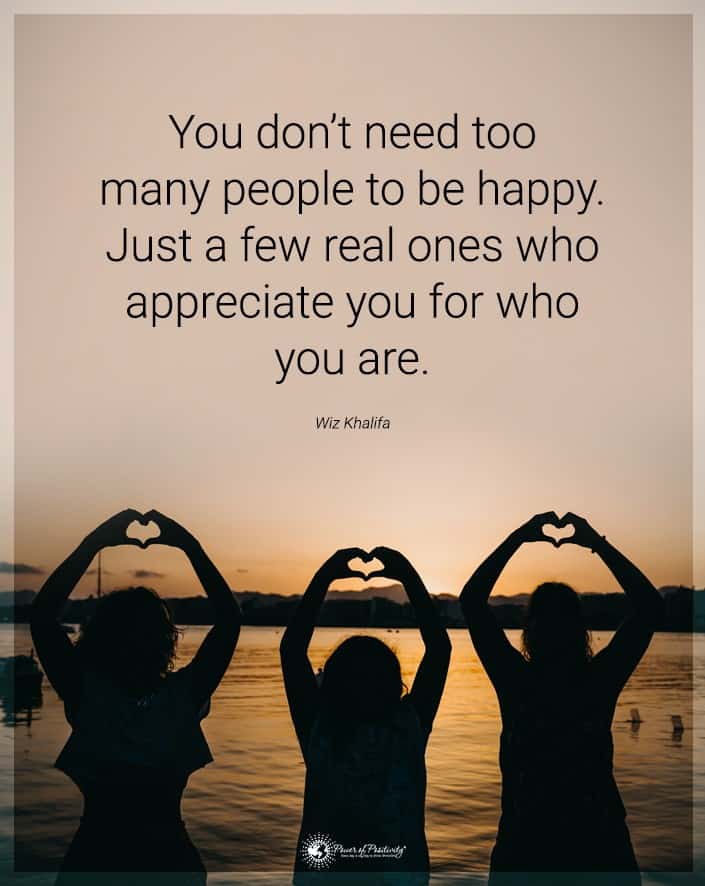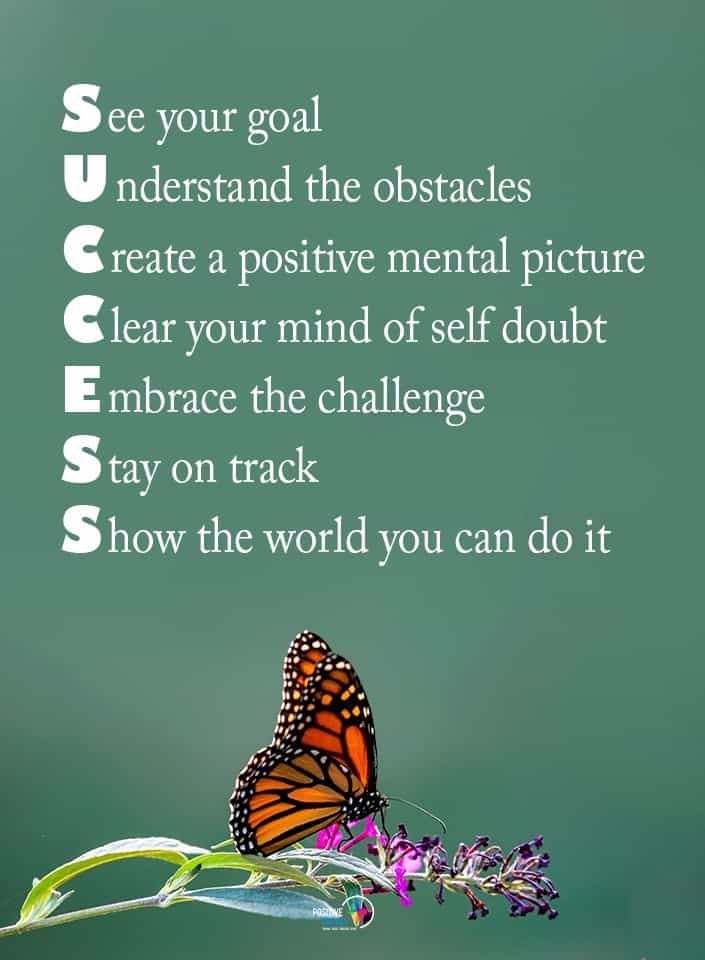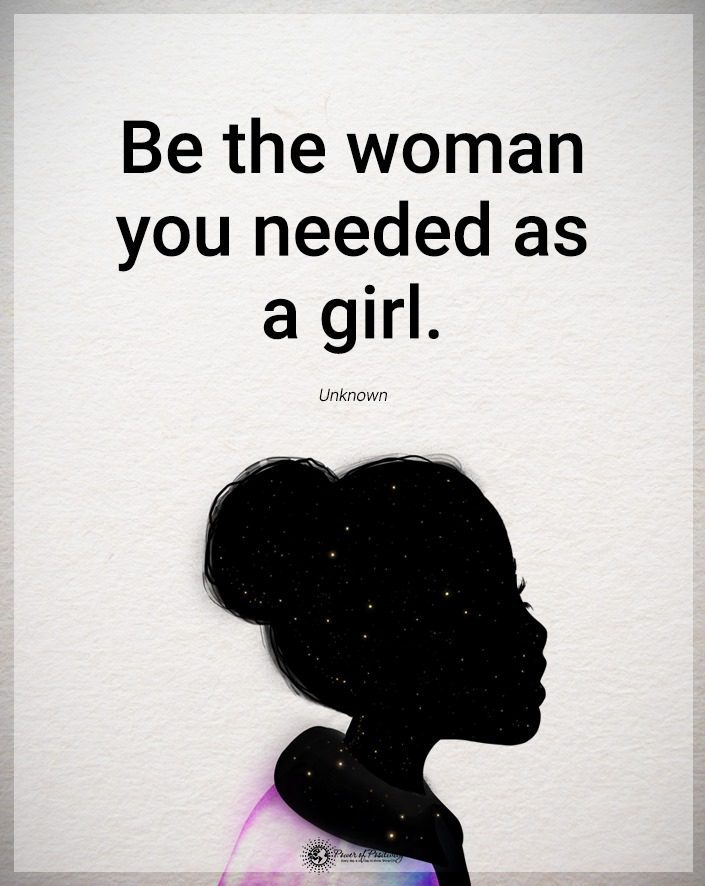Our brain: the original computer and the most complicated organ in the body. It’s the boss of all that we have going on, with over eighty billion neurons firing to keep things running. It’s important that we take proper care of command central to ensure a long life of good health and mental well-being.
Here are eight things we do that damage our brains:
1. We do not eat breakfast.
Many people either skip breakfast or eat sugary, nutrient-lacking foods that spike their insulin, leaving them feeling lethargic and unmotivated to do much of anything. Go for whole, fresh, ripe fruits and veggies or starches to give your body the energy it craves.
When you wake up each morning, make sure you have a nutritious breakfast of something like a fruity smoothie, oatmeal, whole fruits, or maybe a green juice. Having the essential vitamins and minerals in your bloodstream will give you the energy to tackle everything in your day, and will help keep your blood sugar under control.
2. We avoid exercise.
We are all aware of the benefits of exercise to our body and our health. Think of the brain as you would any muscle in the body. If the body sits still for too long, the muscles get stiff and sore. This fact is true for the brain as well. The longer we avoid exercise, the longer it takes to get back into shape. Our brain benefits from both physical and mental exercises. Get the blood flowing through exercise and then challenge your brain at least once a day. Read something, watch a documentary, or have a stimulating conversation. Let’s become curious to learn new things and exercise our brain in the process.
3. We overload our brain with information.
Information is everywhere. It’s on our phones, on the radio, on our computers, and even on our wrists. We can’t help but read, watch and listen ourselves into a state of information overload. The problem isn’t the information itself; it’s the fact that our brain can only hold small amounts of information in our short-term memory. Knowing that, every time we read an article, we have to lose another piece of information to make room for it. And when we are losing the important information to make room for “news,” we are doing our work and our families a disservice. Our goal should be to disconnect and value the right kind of information so as to not tax our overloaded brains.
4. We multitask.
Along the lines of information overload, multitasking taxes our brain into a fatigued state, making it virtually impossible to be productive. In many work situations, it is a sign of achievement to see how many balls we can keep up in the air at the same time. It is becoming common knowledge that multi-tasking does not lead to better or more work. Give your brain a break and do better work by single-tasking your way to the top.
5. We smoke.
The fact that smoking is bad for you should not come as a surprise. Anything that reduces the supply of oxygen to the body is bad for our brains. Smoking doesn’t just affect the brain and the lungs; it affects other parts of the body that keep our brain healthy. including the carotid artery that supplies blood and oxygen to the brain.
6. We don’t drink enough water.
When it comes to water, unfortunately, a shocking 75% of Americans suffer from chronic dehydration, according to a report by CBS.
Seeing as approximately 60% of our bodies, 75% of our muscles, and 85% of our brains are composed of water, dehydration should not be taken lightly. Dehydration can affect many different functions and parts of the body, leaving you feeling lethargic, sick, and simply exhausted.
Experts say that people don’t need to necessarily drink eight glasses of water per day, but at least half an ounce to an ounce for each pound you weigh, according to an article on WebMD.
Exercise and the climate where you live also come into play when calculating how much water you need to drink per day. If you live in a very hot climate and exercise outdoors frequently, you’d need more than the recommended amount. If you live in a cooler climate and are mostly sedentary, your water intake would fall on the lower end of the range.
7. We aren’t happy.
Sadly, negativity affects the brain. When the brain is happy, it releases endorphins, the same way it does when we exercise. These are our natural stress and pain relieving hormones. They make us feel good about ourselves and, in turn, create more happiness. Do something every day for pure joy. When we foster our playful and creative self, we are feeding our brain what it needs to help us through more difficult times.
8. We fail to get a good night’s sleep.
When we sleep, several important functions are taking place. Our bodies are not only resting, but they are repairing themselves too. There is muscle repair going on, memory consolidation, and there is a release of various hormones relating to growth, appetite and other important activities. When we awaken after a good night’s sleep, we feel relaxed and refreshed, ready to face the day and all it brings. Get a poor night’s sleep and the difference is obvious as we struggle to make decisions and stay alert.

